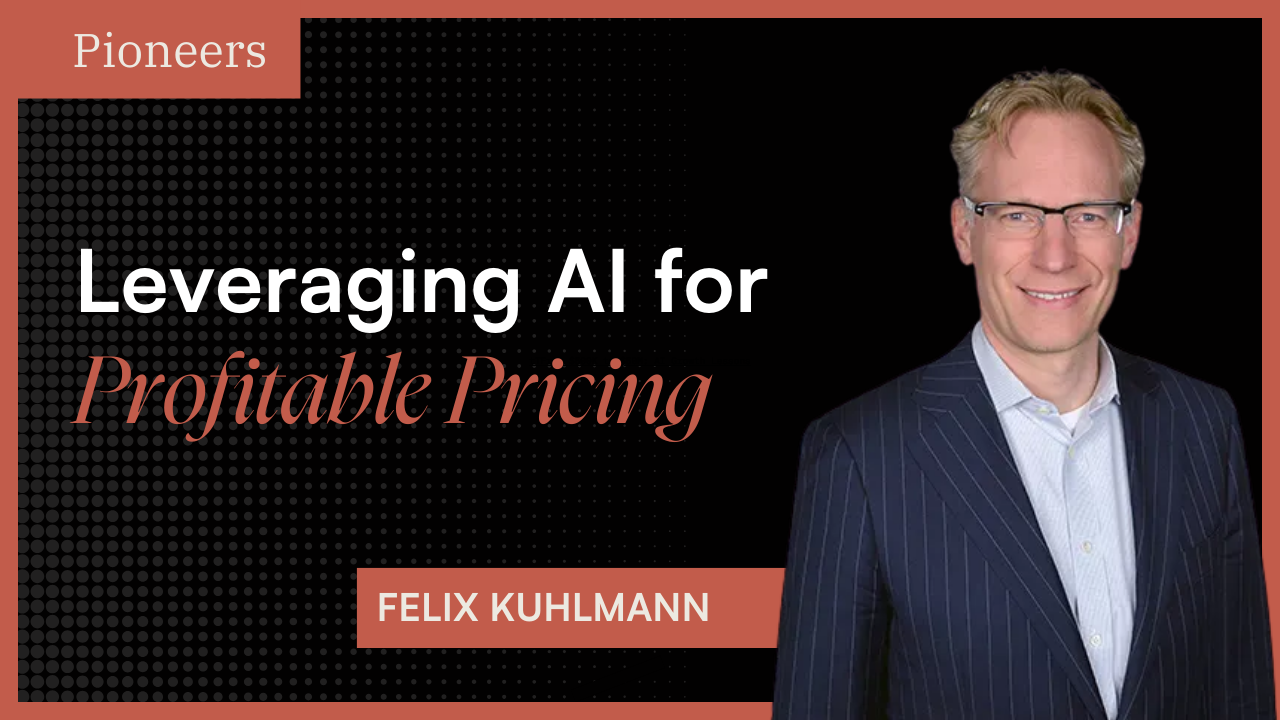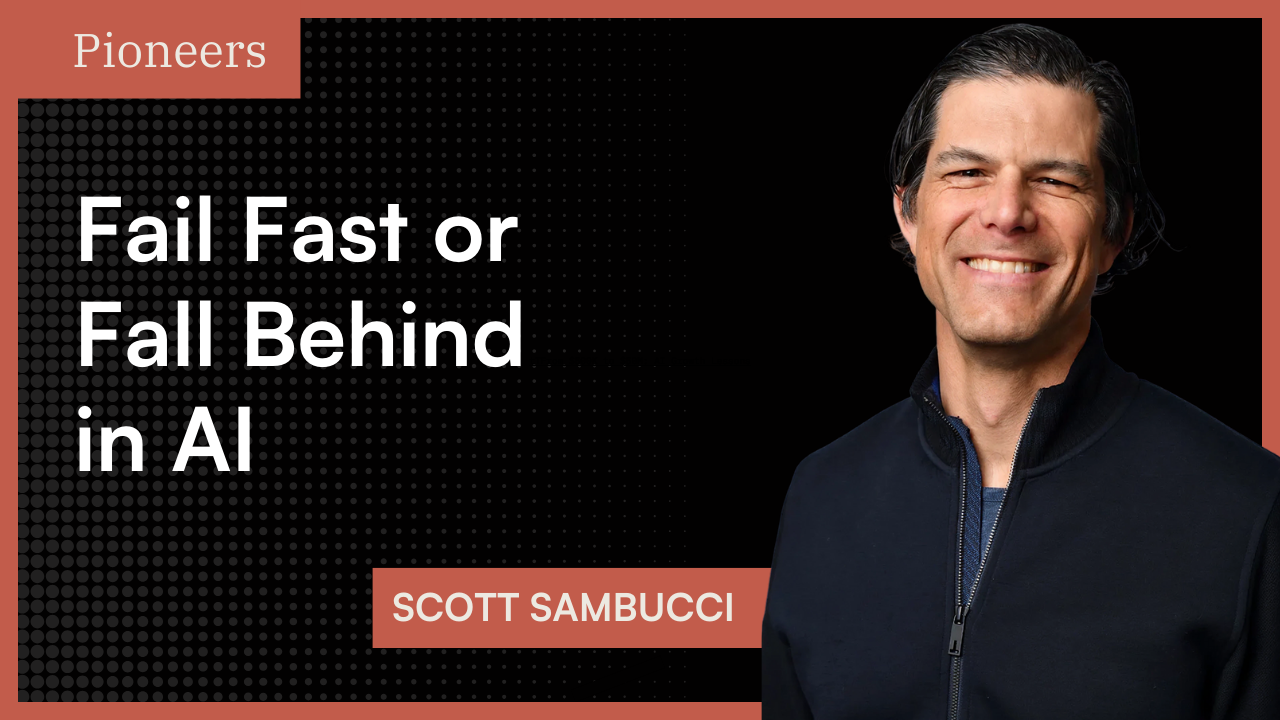This is a summary of an episode of Pioneers, an educational podcast on AI led by our founder. Join 2,000+ business leaders and AI enthusiasts and be the first to know when new episodes go live. Subscribe to our newsletter here.
TLDR:
- Ada Health is an AI-powered health assessment platform available as a consumer app and enterprise solution. It was originally built by doctors to diagnose rare diseases but has evolved into a consumer-facing tool.
- Ada Health aims to augment, not replace healthcare professionals by providing detailed health assessments.
- The platform helps route patients more effectively, reducing unnecessary urgent care visits.
- Ada Health is useful for diagnosing rare diseases, potentially reducing diagnosis time from 15 years to days.
- Ada Health is exploring the use of large language models to improve user interaction and symptom description, prioritizing data privacy and security across different geographical regions and regulations.
Before we dive into the key takeaways from this episode, be sure to catch the full episode here:
The Origin of Ada Health
Vanessa Lemarié's journey in the healthcare industry is similar to many innovators who recognize the potential for change within traditional sectors.
Her transition from a career in pharmaceuticals to her role as Chief Operating Officer at Ada Health was driven by a vision to revolutionize healthcare diagnostics.
The pivotal moment for Lemarié came when she recognized the untapped potential of AI in streamlining diagnostic processes.
By focusing on data-driven strategies and patient-centric solutions, Lemarié and her team at Ada began reshaping how health assessments are conducted and delivered.
"We have turned it into a consumer facing tool, it's available in an application and app stores worldwide, but also as a technology that partners and client of ours integrate into their own digital outreach for health consumers to help people self assess for health issues.”
- Vanessa Lemarié
AI: The Catalyst in Healthcare Evolution
Traditional diagnostic methods, once rooted in time-consuming consultations and potential misdiagnoses, are being improved by AI's capability to analyze vast symptom datasets, predict outcomes, and automate complex assessments. This shift isn't just about efficiency; it's a fundamental change in how healthcare providers operate, assess symptoms, and interact with patients.
- One of AI's most significant impacts in healthcare is on symptom assessment and diagnosis.
Ada Health's AI algorithms can process and analyze patient data more comprehensively and accurately than traditional methods, leading to more precise health evaluations. This capability allows Ada Health to offer personalized health assessments, tailored to individual symptoms and health profiles.
- Patient interaction is another area where AI is making substantial strides.
Ada Health's AI-powered platform provides 24/7 health guidance, answering queries, and even assisting in preliminary diagnoses. This improves the patient experience but also alleviates pressure on healthcare systems, allowing human doctors to focus on more complex cases.
But the integration of AI in healthcare is not without challenges. There are concerns regarding data privacy, ethical use of AI, and potential job displacement in the medical field. Ensuring transparency in AI decision-making processes and maintaining a human touch in healthcare interactions are essential to address these challenges.
The Challenges and Opportunities in the Healthcare Sector
The healthcare sector, while ripe for innovation, faces a unique set of challenges and opportunities.
The Challenges
One of the primary challenges is the industry's resistance to change.
As Lemarié noted, healthcare is an established field with deep-rooted practices and infrastructure. This slows the adoption of new technologies and methodologies, making it challenging to bring about rapid change.
Another significant challenge is navigating the complex regulatory landscape. Healthcare is heavily regulated, with varying standards across different regions. Ensuring compliance while innovating can be a delicate balance for many companies.
The Opportunities
The demand for personalized healthcare solutions opens up avenues for innovators to differentiate themselves. As Lemarié pointed out, there's a growing need for healthcare providers to interact with patients in new ways, offering faster service and better health guidance.
The opportunity for technology to streamline operations and improve diagnostic accuracy is another significant advantage. AI and machine learning can automate routine tasks, improve health assessment accuracy, and enhance early detection capabilities.
“For a hundred thousand Ada assessments completed, I mean, you're saving upwards of 500,000 dollars to the bottom line and 1,500 hours of physician time.”
- Vanessa Lemarié
The Future: Competition and Adaptation
The future of healthcare diagnostics is exciting, marked by a blend of competition and adaptation. As Lemarié emphasized, the industry is witnessing a shift propelled by technological advancements and changing patient expectations.
Traditional healthcare providers are now facing competition from innovative HealthTech startups like Ada Health. These new startups are leveraging AI to reshape the industry, offering faster, more efficient services, often with improved accuracy.
This wave of innovation and competition calls for adaptation from traditional healthcare providers. The key challenge for established players is not just the adoption of new technologies, but also the integration of these technologies within their existing systems and processes.
Reinventing Healthcare
We are heading towards a new era in healthcare. Lemarié’s journey and Ada Health's success serve as examples of this transformation.
Lemarié embodies the spirit of adaptation and forward-thinking that is vital in today's rapidly evolving healthcare landscape, and her approach offers a roadmap for others in the sector.
The healthcare industry, like many others, is on a journey of reinvention. It's a journey marked by the challenge of change with the promise of innovation. The rewards of this journey are not just in business outcomes but in contributing to a future where technology augments our ability to diagnose and treat illnesses, making the world a healthier, more accessible place.
.svg)
.avif)


.svg)
.svg)

.svg)
.png)


